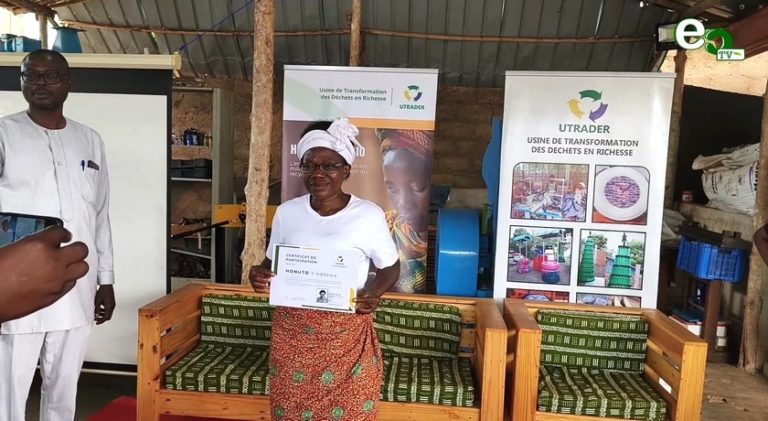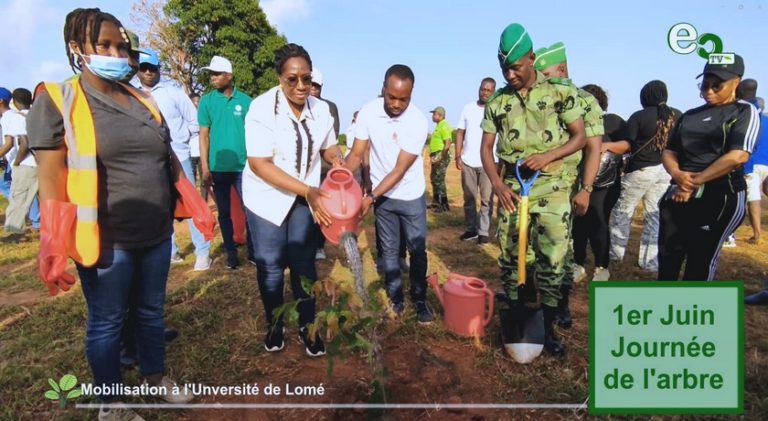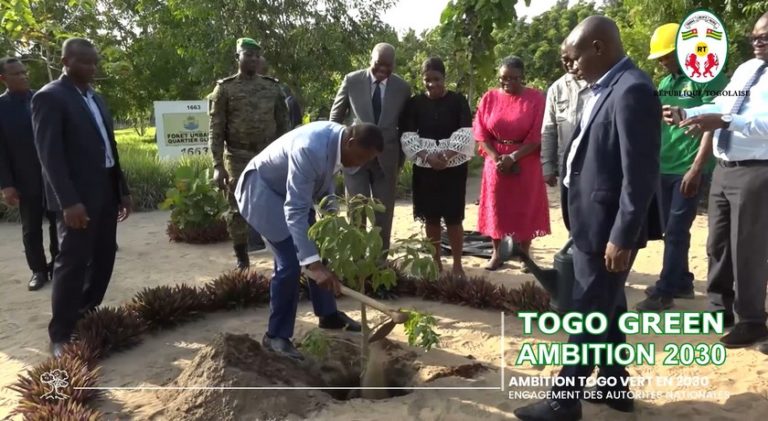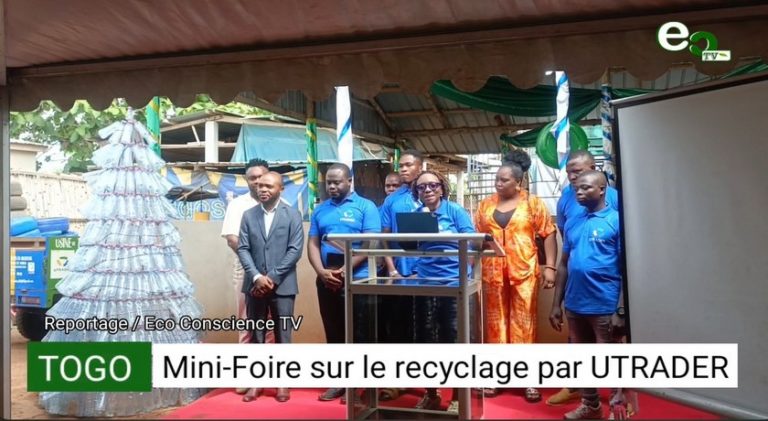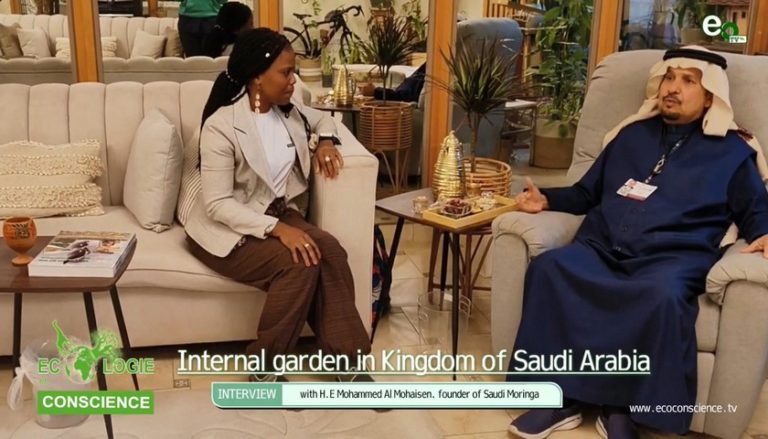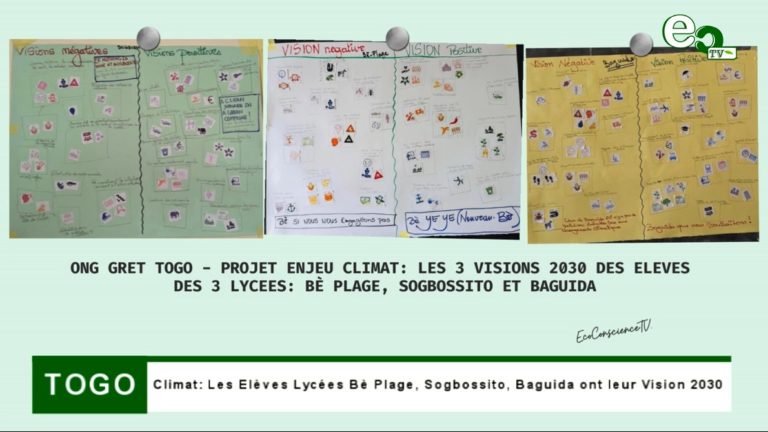The National Agriculture Campaign (2018-2019) was officially launched in Lome by the Minister for Agriculture and Fisheries. This is a move that need to be appreciated by all of us. Agriculture is the backbone of our economy and is the main employer in rural communities.
Farmers need fertilizer to increase farm productivity. We commend the idea of providing each farmer 3 bags of fertilizer. Indeed farmers in developed countries enjoy such kind of support from their governments. It is time now that we provide similar subsidies to our farmers. We need to produce enough food for ourselves in order to avoid hunger and mulnutrition, use of our meagre foreign reserves to import food or be dependent of foreign foods.
Though we commend the government for this action there are concerns that need to be taken into account.
First concern is the fact that farm productivity does not depend on fertilizer alone. A farmer can have enough fertilizer but still fail to increase farm yields due to other factors. For example, yields depend on the knowledge of the farmer on fertilizer application. Improper application of fertilizer can have no effect or in severe cases reduce instead of increasing yields. Fertilizer has to be applied at correct rates and times. How many of our farmers know about this? Will the farmers receive fertilizer in time? Do we have enough extension officers in rural areas to assist these farmers? If not this free fertilizer may not achieve the intended results.
Second, due to bureaucracy and corruption has the ministry put in place a system that will ensure farmers receive the fertilizer? Is there a system that will ensure farmers receive it without any charge? Will the distribution be fair to all farmers? If the Ministry has no such systems in place the support may end up in wrong hands or will benefit those who are not targeted by the government.
Third, is the issue of sustainability of the support. Will this kind of support be sustained for at least 10 years or is it a 1 season support? Has the ministry sustainability plan?
Fourth, apart from fertilizer does the ministry consider other important issues such as irrigation, mechanization, storage, transportation and marketing?
We know there are some NGOs and individuals who may criticize this government support based on their perceptions; in particular on their perceptions about organic or ecological agriculture. Due to limited knowledge in Agronomy they will think provision of NPK and Urea is bad to agriculture. This is not true. NPK (Nitrogen, Phosphorus and Potassium) are needed for plant growth. NPK can be available naturally or manufactured industrially. The truth is our soils do not have sufficient amounts of natural NPK. Farmers are forced to add industrialli manufactured NPK otherwise they will produce less and become more poorer. The only possible argument is that:do we have proper soil analysis to guide our farmers when adding NPK? Adding more than necessary is also harmful. It can destroy the soil structure, texture and composition. So providing industrial NPK to farmers is not as bad as many would like all of us to believe. The only problem is we do not have good soil fertility maps to guide farmers.
Organic farming where manure and compost are the main fertlizers is good. But one must know that there are many farming communities that do not keep livestock. Neither do they have enough quantities of materials to produce compost. One should also know that for 1 hectare a farmer need 4 tonnes of farm yard manure in order to get recommended amount of Nitrogen. How many farmers can collect 4 tones of manure in our rural communities? How much work and time is needed for that task alone?
Another factor that one need to consider is that organic farming is not only about using manure or compost. You need consumers who are willing to buy organic products. In Africa such consumers do not exist. Consumer buy the cheapest not the safest food product in the market. You also need a special government support to offset crop losses for at least 10 seasons. Organic farmers in the EU enjoyed this support. The government pay the farmer to become organic. In Africa governments do not provide this support. Therefore encouraging a rural African farmer to produce organically is similar to asking him or her to sign his or her own death warrant! She or he has no market advantage over a normal farmer neither is his or her government providing him or her a special subsidy to offset crop losses.
We are not saying organic or ecological farming is bad but in the current situation it cannot work in many rural areas of Africa. We need to sensitive consumers and the government has to give them special financial support.
For more info or debate contact
Dr. Yahya MSANGI
International Tech Adviser
ECO CONSCIENCE TV

